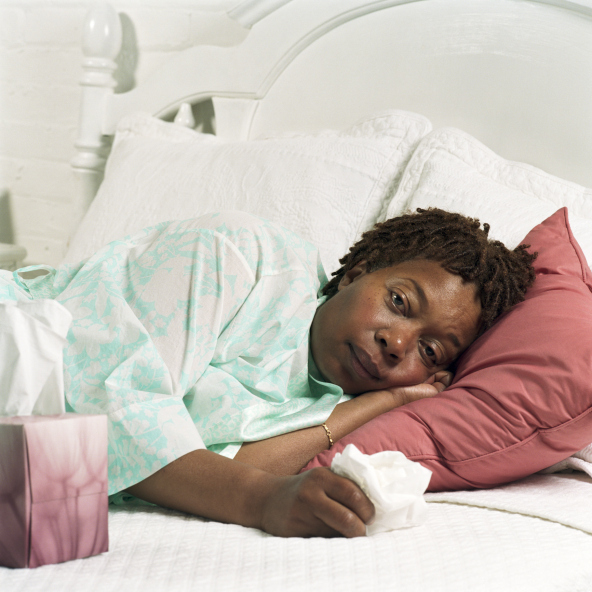
This article is being presented to you by Theraflu.
You've been coughing and sneezing for a couple of days now. Are your symptoms contagious to others? How can you tell if you should just stay at home to avoid infecting others?
The cold and flu season lasts from September until March, but catching a cold has nothing to do with the temperature outside. The reason colds are so contagious has more to do with the amount of time people spend inside in close contact with each other.
When is someone with a cold or flu actually contagious?
The common, contagious cold is a brief, mild illness, usually lasting no more than a week. The flu can last somewhat longer, generally for about one to two weeks. The early symptoms of a cold are sneezing, and/or a sore throat starting two to three days after you have been infected. Flu symptoms appear about 1-4 days after infection and can include a high fever (103°F to 104°F in adults; as high as 106°F in small children), chills, fatigue, body aches, headache and/or a sore throat.
The CDC says that "Most healthy adults may be able to infect others beginning 1 day before symptoms develop and up to 5 to 7 days after becoming sick. Children may pass the virus for longer than 7 days."
This is also important information to remember, since many people who have the flu may not have easily recognizable symptoms. This means you can be contagious even before you know you are sick.
When should you stay at home?
Most doctors particularly agree that once you're running a fever, you should consider staying home at least during the first two days you're sick. If you have a runny nose and are coughing, you are more likely to spread germs to others.
Knowing when to stay home depends on where you work. Staying home from work or school probably won't make your cold or flu go away more quickly. But being a good coworker or classmate means knowing when you're likely to infect others and trying your best to avoid doing so. It's best to try and stay at home when you know you're contagious. Work or school may be busy, but in the long run, it's better for everybody.
If you're sick...
The bottom line, if you have a fever, or you are coughing and sneezing, consider staying home, especially if you work in close contact with others. If you must go to work or school with a contagious cold, however, do your best not to spread it by using a tissue to cover your nose and mouth when you have to cough or sneeze, throwing away used tissues, and washing your hands frequently. Avoid close contact with your co-workers or classmates as much as possible.
If you're not sick...
Checking Theraflu's Flu Tracker can help you gauge the environment around you. Additionally, good handwashing, great hygiene, eating healthy and getting the flu vaccine (to avoid the flu,
not a cold) are some of your best bets to stay healthy.









